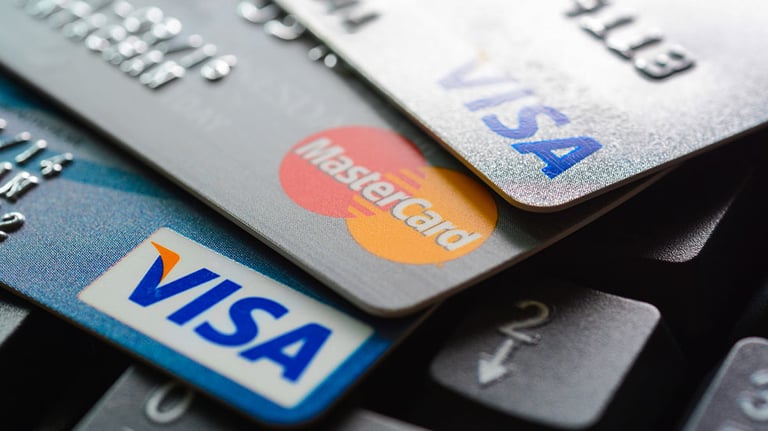

Credit cards are a staple in most people’s lives. After all, they’re a convenient tool for expenses small and large. When it comes to applying for one, though, we tend to get overwhelmed. Choosing the right one can be difficult, especially if you’re new to owning one or have a poor credit history.
Some credit card issuers try to take advantage of people in these positions or offer little to no help. So, if you want to avoid stress from the start, look for these credit card red flags.

What red flags should stop me from applying for a credit card?
Not all credit card offers are made alike. Some are designed to help your card issuer more than you. Before signing up for a card, look for these red flags.
Low credit limits
Most credit cards have a credit limit, meaning you can only charge so much to it. Secured credit cards typically match your security deposit. So, the real problem comes with unsecured or starter credit cards.
Sometimes, credit card companies use poor (or a lack of) credit to put low limits on these types of cards. Because of that, it’s much easier to hit your limit, which can impact your credit utilization ratio. Essentially, it’s the amount you owe on your available credit. And if you go too high above the recommended percentage, you can hurt your credit score.

Outlandish fees
Unfortunately, we can’t avoid every single credit card fee. That doesn’t mean we should accept a laundry list of them.
Some cards, known as fee-harvester cards, feature charges that most consumers wouldn’t know about or expect. These fees are generally unnecessary. However, they are very common, some of which include maintenance fees, application fees, membership fees, and more.
Avoiding credit cards with these types of charges will give you a better chance of building credit.
Excessively high interest rates
For some, a high interest rate doesn’t matter. That’s because they usually don’t carry a balance from month to month. But for many, that’s just not possible.
Financial hardship often leads to credit card debt, something almost half of Americans struggle with. If a card charges an incredibly high APR, or annual percentage rate, consider looking elsewhere. For instance, cards from credit unions typically come with lower interest rates.
What red flags should have me reconsider keeping a credit card?
It’s easier to avoid credit cards before you sign up for them. However, sometimes you only realize a credit card doesn’t work while you’re using it. If you are noticing red flags like these, consider switching.

Limited credit reporting
Many people use a credit card so that they can build up their credit score. To do that, your credit card issuer has to report your credit card balances to credit bureaus. The main ones are Equifax, Experian, and TransUnion. Not all issuers report to all three, though.
That could stop you from getting financing or a loan at a later date. For example, your lender goes to pull up your Equifax report, but your issuer only sends reports to Experian. The lender may reject you completely or offer unfavorable terms. So, consider switching to a card issuer that reports to all credit bureaus.
No upgrade paths
Even if you started out with poor or no credit, you can improve. Using your card responsibly will help your score rise, which opens up opportunities for new cards—like a secured one.
But look into your issuer. They may not offer you an upgrade option. As a result, that blocks you off from better terms such as increased credit limits. While the old card may still be useful, it might also become costly and restrictive. Closing a card can hurt your score, so research your options carefully before choosing a new one.
